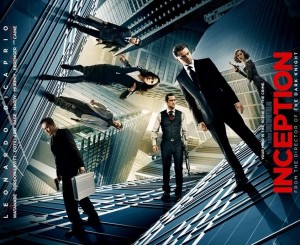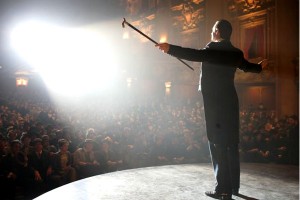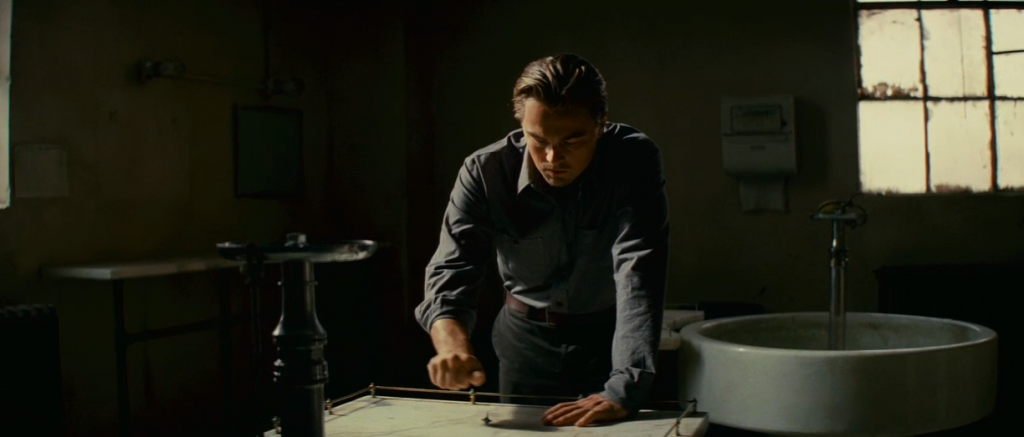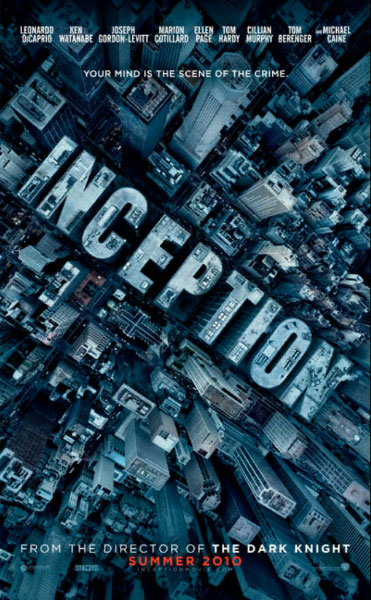 The term “cliffhanger” emerged between the early 1900s and 1937 in silent films, featuring (according to Wikipedia) “a main character in a precarious or difficult dilemma, or confronted with a shocking revelation at the end of an episode of serialized fiction… hoped to ensure the audience will return to see how the characters resolve the dilemma.” These weren’t always satisfying upon the next episode of course, as Annie Wilkes reminds us: “They didn’t get out of the cockadoodie CAR!” Ah, Misery – fond memories. (Hobbling memories.)
The term “cliffhanger” emerged between the early 1900s and 1937 in silent films, featuring (according to Wikipedia) “a main character in a precarious or difficult dilemma, or confronted with a shocking revelation at the end of an episode of serialized fiction… hoped to ensure the audience will return to see how the characters resolve the dilemma.” These weren’t always satisfying upon the next episode of course, as Annie Wilkes reminds us: “They didn’t get out of the cockadoodie CAR!” Ah, Misery – fond memories. (Hobbling memories.)
Since I don’t think Christopher Nolan‘s Inception will grace us with a sequel, the unanswered question (or IS it?) as the screen fades to black should coin a new phrase: “topspinners” – ambiguous endings that provoke awe, frustration, and debate. Let’s see if it takes. If you haven’t seen the video primer or our introduction to this exploratory series, check them out. The SPOILER-laden entries now ensue.
The first thing I want to address is the black or white question a LOT of people are asking after the end of the film, related to that spinning top which doesn’t drop because the film cuts to black (well, maybe it wobbled). Most people leave asking whether or not Cobb’s character was “awake” or “still dreaming” at “film’s end”, and base this off their assessment of the top spinning in foreground. However, I would like to submit a wonderful quote from another mind-bending entry from Christopher Nolan, his pre-Dark Knight work of art called The Prestige. The man speaking is conveniently played by Michael Caine, Cobb’s father-in-law in Inception:
 Every great magic trick consists of three parts or acts. The first part is called “The Pledge”. The magician shows you something ordinary: a deck of cards, a bird or a man. He shows you this object. Perhaps he asks you to inspect it to see if it is indeed real, unaltered, normal. But of course… it probably isn’t. The second act is called “The Turn”. The magician takes the ordinary something and makes it do something extraordinary. Now you’re looking for the secret… but you won’t find it, because of course you’re not really looking. You don’t really want to know. You want to be fooled… That’s why every magic trick has a third act, the hardest part, the part we call “The Prestige”.
Every great magic trick consists of three parts or acts. The first part is called “The Pledge”. The magician shows you something ordinary: a deck of cards, a bird or a man. He shows you this object. Perhaps he asks you to inspect it to see if it is indeed real, unaltered, normal. But of course… it probably isn’t. The second act is called “The Turn”. The magician takes the ordinary something and makes it do something extraordinary. Now you’re looking for the secret… but you won’t find it, because of course you’re not really looking. You don’t really want to know. You want to be fooled… That’s why every magic trick has a third act, the hardest part, the part we call “The Prestige”.
Now… ask yourself if the “totem” rules regarding the top even make sense…
1. First of all, Cobb explains the rules, so we just assume he knows what he’s talking about; isn’t he the one who experimented with dreams and inadvertently got his wife killed? Is he trustworthy? Have his other assumptions proven true?
2. Second, the totem – which YOU make, and YOU hold, and only YOU know – might logically protect you from someone else’s architected dream, or someone else’s subconscious (as similarly, Saito was informed by the carpet fiber at the film’s beginning) but if YOU know everything about the totem, how does it protect you from your OWN subconscious? Falling or spinning, your mind could have it do either based on your subconscious desire.
3. Thirdly, wasn’t that totem Mal’s?
 Some people have surmised that maybe Christopher Nolan is pulling off a magic trick of his own, showing us the top and spinning a web of distraction from other factors. They’ll cite the children’s clothing as being the same, or different. Others have noted that Cobb still wearing his wedding ring when he’s “dreaming” yet isn’t in “reality” and watch the film again to see if the ring is on at the end, though many shots the finger is conveniently out of frame. The costume designer of the film weighed in on the clothes (they’re similar, but different) and in the credits different actors played the children at the end, a little older… but do ANY of these answer the question?
Some people have surmised that maybe Christopher Nolan is pulling off a magic trick of his own, showing us the top and spinning a web of distraction from other factors. They’ll cite the children’s clothing as being the same, or different. Others have noted that Cobb still wearing his wedding ring when he’s “dreaming” yet isn’t in “reality” and watch the film again to see if the ring is on at the end, though many shots the finger is conveniently out of frame. The costume designer of the film weighed in on the clothes (they’re similar, but different) and in the credits different actors played the children at the end, a little older… but do ANY of these answer the question?
Finally, philosophy majors and film buffs stopped looking at the final scene and posed the infinitely more interesting query: are we asking the wrong question?
As with the magic trick in The Prestige, are we focused on the last scene and if he’s in or out that we don’t stop to consider the entire film may have been a dream? What if the truth is far more sweeping and complex? I’ve heard theories that the film begins on the subconscious shore with Cobb, and that we can’t be sure anything that follows is real or dream. I’ve even heard theories that Saito is in Cobb’s dream, performing a little “inception” on him. Doesn’t he have a lot of seemingly impossible power, showing up miraculously in Mombasa, buying an airline with the snap of a finger, making a phone call that absolves him of crimes… and just how many characters tell Cobb that he ought to “come back to reality”? For the best websites I’ve found on Inception theories, check out Chud and Cinemablend.
 I love that Christopher Nolan’s film has made shrewd viewers take a few steps back and question themselves, wondering if they are initially asking the wrong question. I’m uncertain he even designed a true answer, but certainly meant the film to be provocative in that sense. After all, don’t we commonly find ourselves down a tunnel of seeming circumstance, asking dichotomous questions of identity and reality? Could it be that we’ve also been distracted? Diverted? Are we narrowly looking at life’s spinning tops and missing the bigger and more important questions of our existence?
I love that Christopher Nolan’s film has made shrewd viewers take a few steps back and question themselves, wondering if they are initially asking the wrong question. I’m uncertain he even designed a true answer, but certainly meant the film to be provocative in that sense. After all, don’t we commonly find ourselves down a tunnel of seeming circumstance, asking dichotomous questions of identity and reality? Could it be that we’ve also been distracted? Diverted? Are we narrowly looking at life’s spinning tops and missing the bigger and more important questions of our existence?
I like the layered approach that this film has had on thoughtful viewers, and how it corresponds to life. We spend so much time trying to determine what it looks like to be a good person versus a bad person, wondering if we’re meant to be this or that, married or single, heterosexual or homosexual, struggling whether to turn right or left, or VOTE right or left… when the reality is we often have tunnel vision, “top-spinning vision”, missing important clues and ultimately questions that require us to pull back to the “beginning”. We need to look at things from an entirely different perspective. What if we’re asking the wrong question about life? What if something we missed redefines EVERYthing? What if we missed something that informs ALL things?
Maybe the top wasn’t the defining factor in the movie… and maybe the defining factor in our lives is equally wobbly. Trying to definitively prove whether Cobb is awake or asleep at the end is like chasing the wind… it can’t be done. Unless Christopher Nolan goes on record saying it’s that simple, and has an answer, we can’t know. (Even if he did… well, Ridley Scott said “Deckard was a replicant” and I don’t believe him.) Whether or not the top falls in Inception – and whether or not we were good or bad in real life, foolish or wise, moral or hedonistic – doesn’t really matter if the story’s creator tells us that wasn’t the POINT. If we missed the point, if we were diverted by the ruse… it’s meaningless. King Solomon in all his wisdom and riches knew there was nothing truly gained, versus being poor and foolish. Neither reality informed the ultimate foundation. “Remember your Creator…” he tells us in Ecclesiastes 12, because only the creator can reveal that truth.
We need to step back, look at the bigger questions… and ultimately, we need access to reality’s Director. In the case of Inception, the creator isn’t talking. Thankfully, our Creator is a living Word… and IS.
NEXT POST: Subjective perception – do we really know ANYone or ANYthing?


Do we need to confess and ask forgiveness if we sin in our dreams? Are we always responsible for what goes on in there. For instance, in Inception, killing the “bad guys” even tho they were pronounced to be only projections of his mind.
@linda, i think you should reread this post as your question has nothing to do with the post. a dream is not reality so you would not need to repent but watch your heart diligently…
As a gamer who is use to games having multiple contradictory yet satisfying endings I can take the movie to have two contradictory endings without worrying about which is the right one and picking my preferred version. This kind of story-telling is common in video-games.
[…] From Cliffhangers to TopSpinners via INCEPTION […]
Robin is lifetime pupil of wholesome consuming.